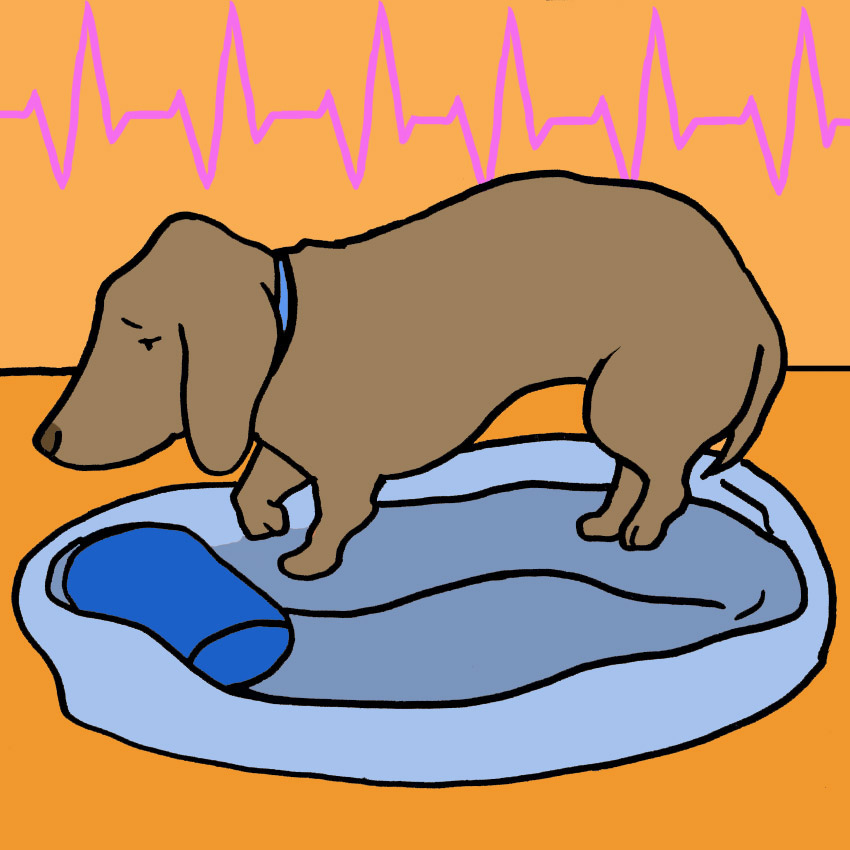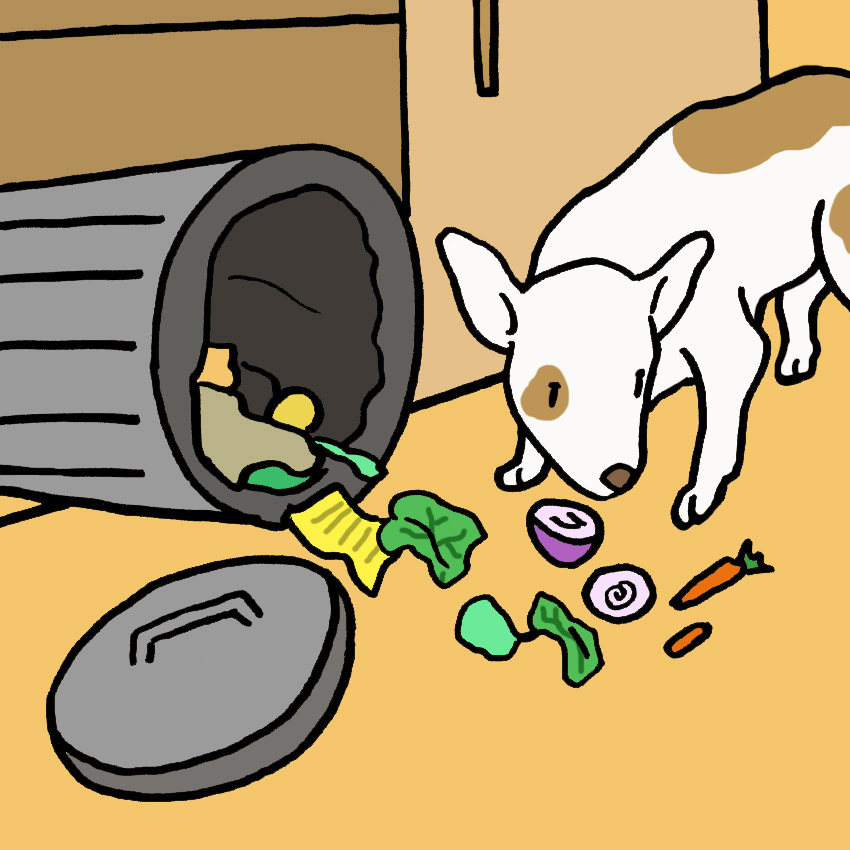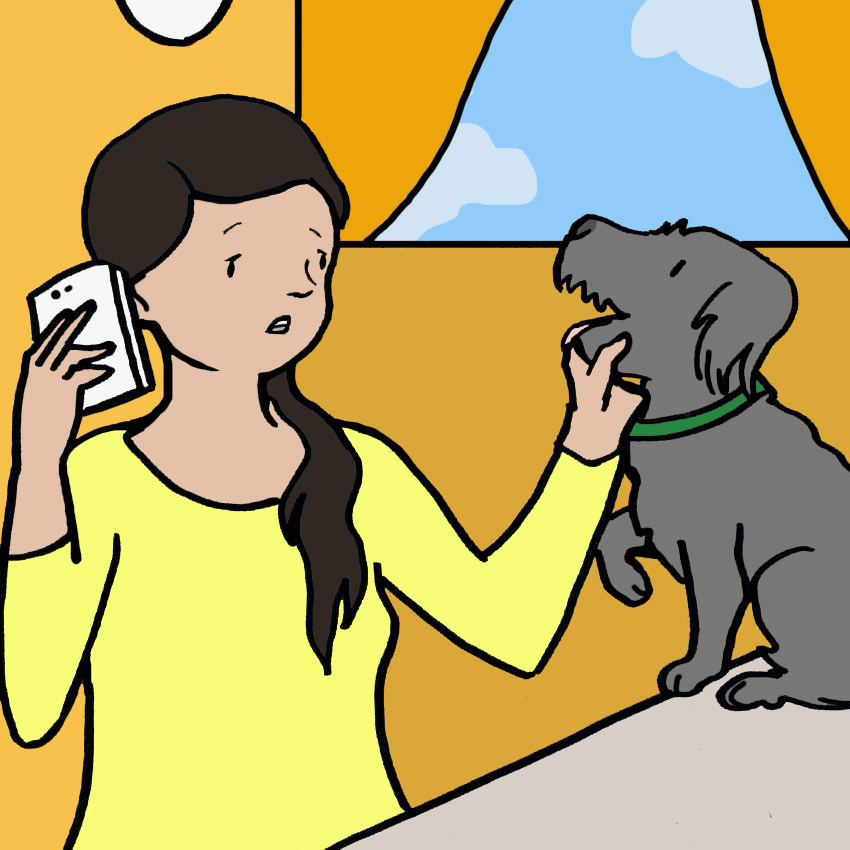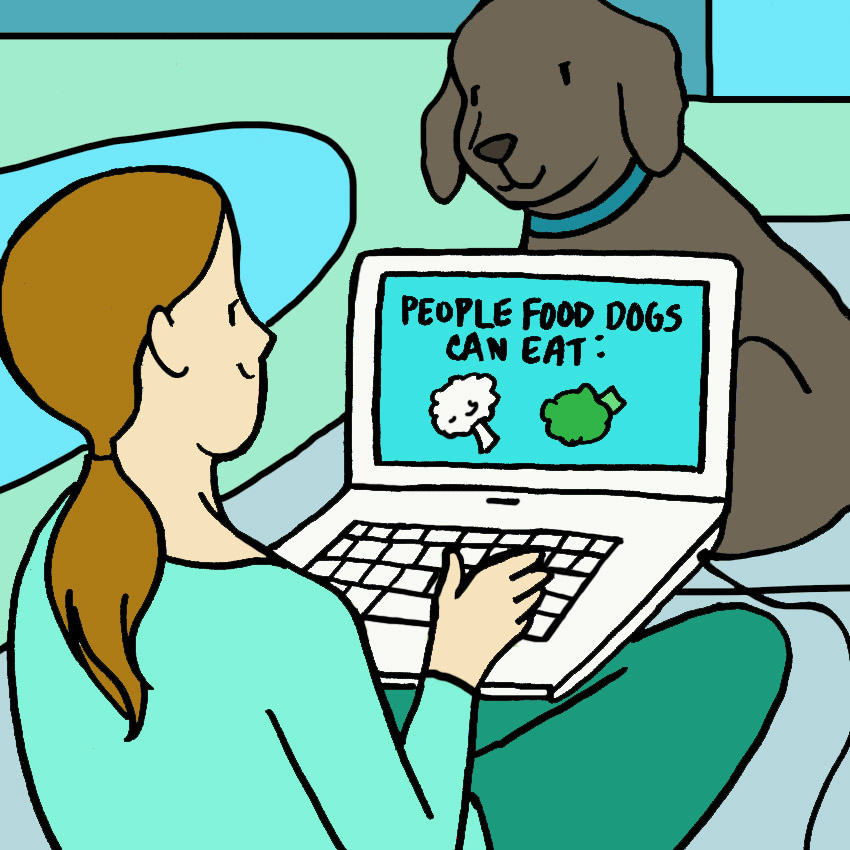Most of us dog owners know by now that onions are bad for dogs. However, maybe it’s time we learned some other details, like why are they bad? What should you do if your dog manages to eat some onions? How much onion is bad for dogs? How serious a matter is this onion thing?
Can Dogs Eat Onions?
No, dogs should not eat onions. The fact is that our pets don’t have the same kind of digestive tract that we do, and unbeknownst to them, the foods we eat are sometimes poisonous to our little furry babies. If you bring home some delicious carryout onion rings and leave them out on the kitchen table, your dog will eat them. But we know by now that dogs do not eat what’s good for them; if they did, we wouldn’t have to pry their jaws open to get those banned items away from them when they’re investigating the great outdoors.
Why Can’t Dogs Eat Onions?

Onions and other members of the allium family – including garlic, shallots, leeks, and chives – can cause hemolytic anemia in dogs and cats, which can be fatal. The National Heart, Lung, and Blood Institute says hemolytic anemia is “a condition in which red blood cells are destroyed and removed from the bloodstream before their normal lifespan is over… when blood cells die, the body’s bone marrow makes more blood cells to replace them. However, in hemolytic anemia, the bone marrow can’t make red blood cells fast enough to meet the body’s needs.”
The body uses red blood cells to carry oxygen to your body and remove oxygen from the body. When you don’t have enough red blood cells, some of the symptoms your body may suffer are pain, fatigue, irregular heartbeat, an enlarged heart, or eventually heart failure. These are all symptoms of hemolytic anemia, says the National Heart, Lung, and Blood Institute.
People who suffer hemolytic anemia may be born with it, or they may develop it during their lives. It is a serious and sometimes fatal disease for people as well as pets, but people don’t get it from eating onions. However, dogs can easily get it.
How Much Onion Can Dogs Eat?

The answer is of course that you don’t want your dog to eat any onions, garlic, or other veggies from the allium family. Still, a dog can easily eat some before you know it. For example, your child could feed the dog some of the luscious baked ziti you made for dinner, with all its delicious sausage and cheese… and onions and garlic! How much is dangerous?
According to NYC’s Animal Medical Center, onion toxicity seems to show up when animals eat more than 0.5 percent of their body weight in onions at one time. In other words, one-fourth of a cup can make a 20-pound dog sick. It also doesn’t matter if the onions or garlic were cooked or raw — even garlic or onion salt eaten in small amounts can make an animal sick.
A few years ago, some cats became sick with hemolytic anemia while under the care of their veterinarians. This happened with cats that were ill and couldn’t eat their normal cat food, so the vets fed them meat baby foods, thinking that they would be easier for their digestive tracts to handle. It turned out, though, that the baby food had been flavored with onion powder. Just that small amount was enough to make the cats sick. Now baby foods no longer contain any onion powder.
What To Do If Your Dog Ate Onions

Will my dog get sick in a half hour or immediately? How do I know if he ate any onions or not? What signs do I need to watch out for? All these questions might come to your mind as you watch out for your dogs.
Dr. Jessica Potosky, DVM, Sanford Animal Hospital, says that if you know your dog has eaten any plants from the allium family, you should contact your veterinarian or emergency clinic immediately. The veterinarian will give you advice on how to decontaminate and induce vomiting if the ingestion has occurred within the last 30 minutes to an hour. If it’s been longer than an hour or so, then Dr. Potosky says, “We recommend veterinary care for 1) decontamination with things like activated charcoal to help limit the absorption of the toxin in the gastrointestinal tract, 2) IV fluids to maintain hydration, and 3) monitoring your pet’s progress."
She adds: “Most of the time the blood work changes and clinical signs do not happen for at least a day after exposure, so by the time your dog shows signs of allium poisoning, veterinary care is needed urgently.”
So you see why it’s important to act quickly if you see any of the symptoms of allium poisoning. Symptoms don’t appear right away! Your dog sneaked in the trash and ate half the lasagna, or you fed him some delicious leftovers accidentally full of onions. Then three days later, he started showing some alarming symptoms.
Here are some of the signs you need to watch out for:
- Excessive tiredness or weakness
- Lack of coordination
- Vomiting and/or diarrhea
- Increased heart rate
- Red or brown colored urine
- Hyper-salivation and an increased respiratory rate
Preventive Measures to Protect Your Dog

We all get tired of the same old food all the time and we want variety. Do dogs have to eat nothing but boring dog food? No, they don’t. Dogs can eat many of the same foods people do, but they are not people (even though many of them think they are!), and they do not have the same digestive tracts as us. The best thing you can do for your dog is to research which foods are safe for dogs.
If this information has been helpful to you and your pet, please SHARE it with other dog owners.




